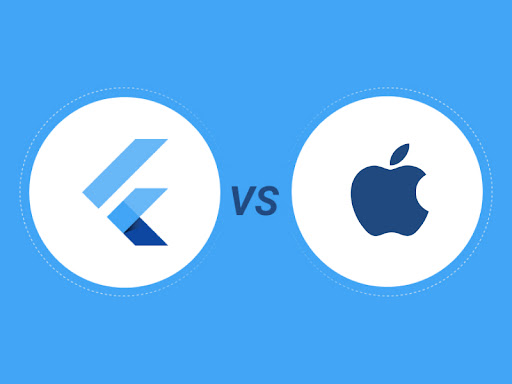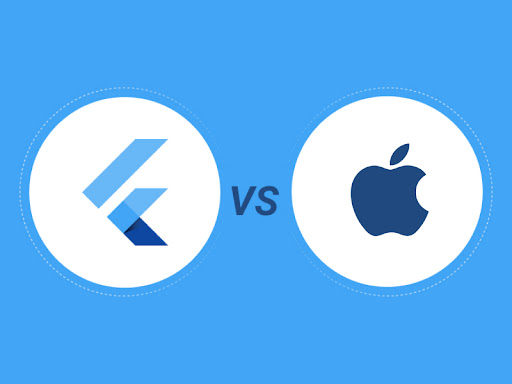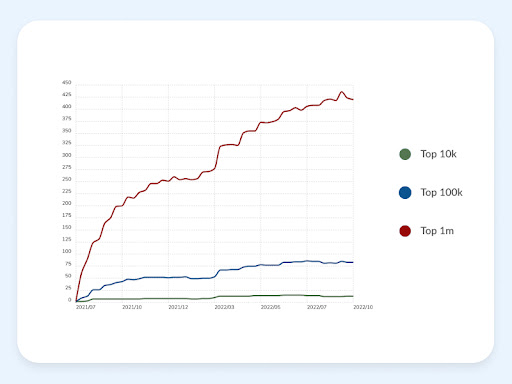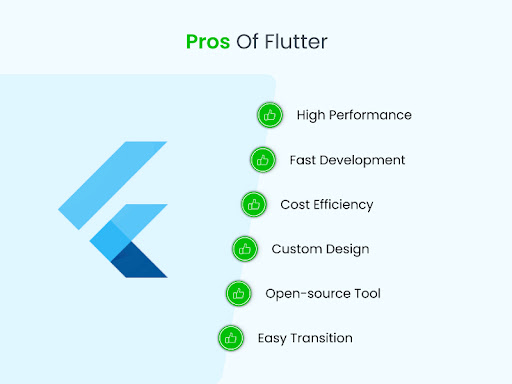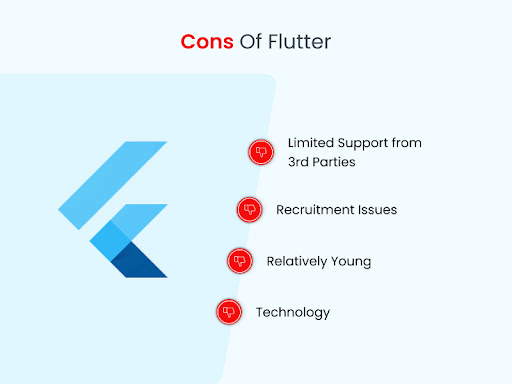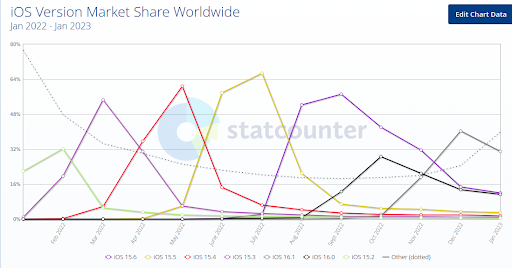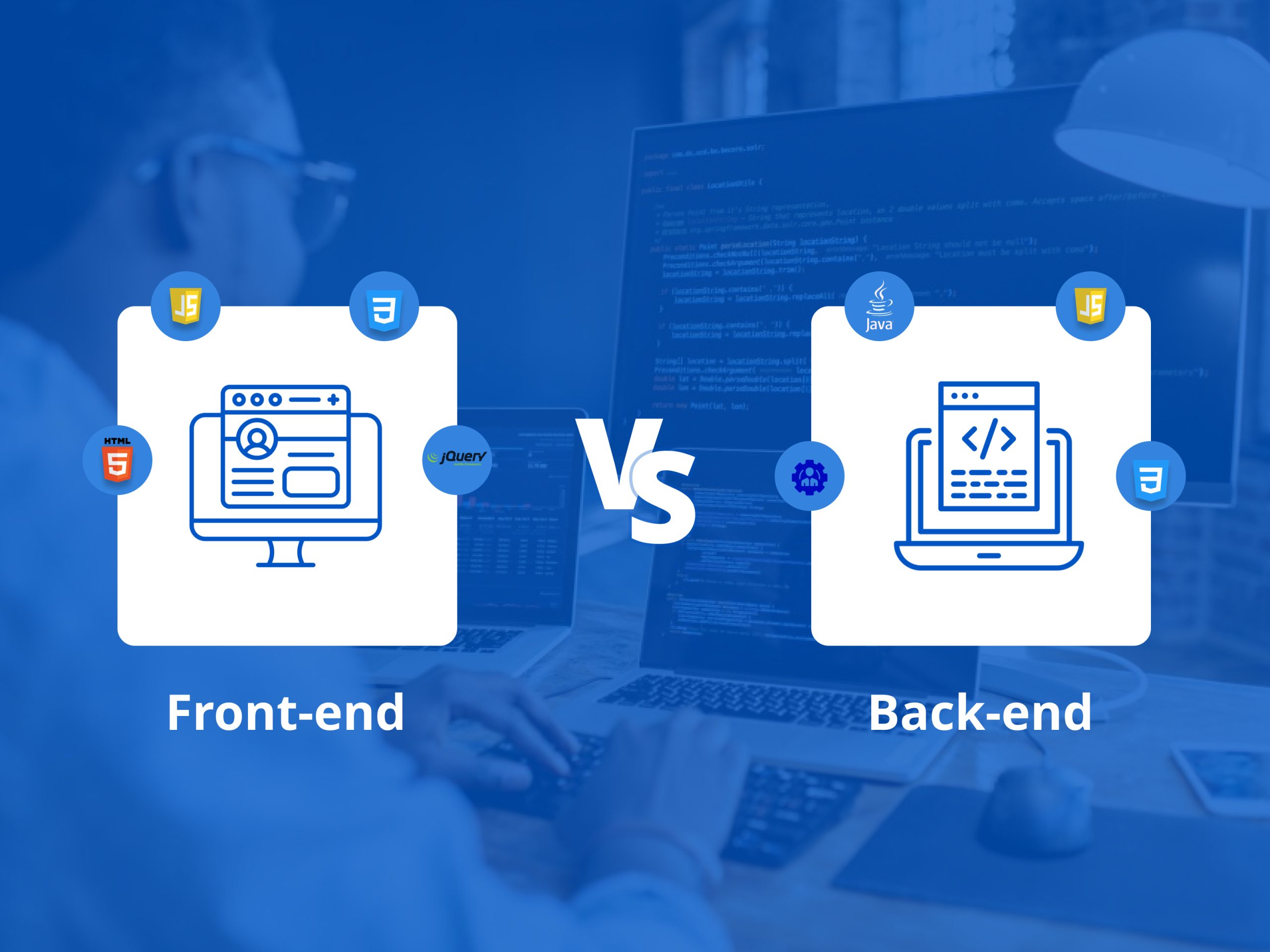The mobile development space is rapidly evolving, and it can be hard to keep up with the latest advancements. When choosing a framework for your app, there’s no shortage of options, but two of the most popular are Flutter and iOS. In this blog post, we’ll look at the comparison between two of the most popular mobile frameworks – Flutter vs iOS – to help you decide which is suitable for your project.
While both offer a range of features and have their benefits, they have some significant differences.
Read on to learn more about each framework’s pros and cons and discover which one will best suit your needs.
Table of Contents
Flutter- An Overview
Created by Google, Flutter is an open-source mobile app development framework. The framework was first released in May 2017 and had since been gaining popularity among developers.
Flutter uses the Dart programming language, a simple and powerful language developed by Google for modern web apps.
According to Biztech’s report, more than 36,889 software were built with Flutter and have been downloaded over 11 billion times.
Also, Read – Flutter vs. React Native: Which One You Should Choose for Your App in 2023?
Key Features of Flutter
1. Hot Reload
The feature allows you to make changes to your code and instantly see the results on the simulator or device. It helps developers to experiment easily, build UIs, add features, and fix bugs faster.
2. Cross Platform
Flutter allows developers to create apps for both Android and iOS from a single codebase, saving time and effort.
3. Flexible UI
Flutter provides widgets that are not just flexible but customizable as well. It helps developers to create custom designs and use their creativity.
4. Rich Libraries
Flutter has a rich set of libraries, making it easy to integrate with third-party APIs. It also provides robust support for animation, audio, and video.
5. Single Codebase
Developing applications with Flutter is based on a single codebase. It makes it easier to maintain and develop applications.
6. Fast Development
Flutter allows developers to quickly develop apps with its ‘write once, run anywhere’ approach. It saves time and helps developers deliver the app faster.
Therefore, Flutter is a great choice for software developers looking for a fast and intuitive mobile development framework.
Its ability to use reactive programming techniques, support for multiple platforms and comprehensive design library make it an excellent choice for developing modern mobile applications.
- 18+ Years Exp
- 12500+ Successful Projects
- 5400+ Happy Clients
Pros of Flutter
There are various advantages of using flutter, including:
- Easy to use: Flutter has a simple user interface, making it easy for developers to create high-quality applications.
- Cross-platform: Flutter can be used to develop apps for Android, iOS, Windows, Mac, Linux, and the web.
- Cost-effective: Software development with Flutter is less expensive than other mobile frameworks. It allows developers to reuse code across multiple platforms.
- High-performance: Flutter offers excellent performance with smooth animations, faster rendering, and a better user experience.
- Widgets: Flutter comes with various widgets, making creating custom UI elements easier and faster.
- Hot Reloading: With Flutter’s hot reload feature, developers can quickly change their code and see the results in real time.
Cons of Flutter
The following are the disadvantages of using Flutter:
- New Framework: Flutter is relatively new and is still being improved. It means that it may lack some features or stability as compared to more mature frameworks like iOS.
- Time-consuming: Developing with Flutter can be time-consuming as a learning curve is associated with it.
- Fewer Plugins: Not all libraries and plugins may be available for Flutter yet.
- Tricky Integration: Integrating Flutter into existing projects that use a different framework can be difficult.
- Small Community: The support community for Flutter is not as large or active as the iOS developer community.
Also, Read – Flutter Vs Xamarin: Which is Better?
iOS – An Overview
iOS is Apple’s mobile operating system, used to power its iPhone, iPad, and iPod Touch devices. It was first released in 2007 and is now the world’s most widely used mobile platform.
The latest version of iOS is iOS 16.3, released on January 23, 2023.
iOS mobile framework offers a range of powerful features, making it an excellent platform for developing apps. It uses an intuitive user interface and touch-based navigation, making it easy to use.
Additionally, the iPhone app framework offers comprehensive support for various media, including photos, videos, music, books, and podcasts.
Here’s the graph stating the global market share of iOS:
Key Features of iOS
-
Native Performance
iOS apps are designed to take advantage of Apple devices’ robust hardware and performance capabilities, making them incredibly fast and responsive.
-
Easy-to-use Interface
iOS has a simple and intuitive user interface that makes it easy for anyone to use, regardless of experience level.
-
Powerful Security
With built-in security features such as Touch ID and Face ID, users can be sure their data is protected.
-
Apple-exclusive Features
Many features are only available on Apple devices, such as AirPlay, iMessage, and Apple Pay.
-
Regular Software Updates
Apple regularly releases new versions of iOS with improved features and bug fixes.
-
Integrated App Store
iOS users can access the App Store directly, making it easy to discover and download new apps.
- 18+ Years Exp
- 12500+ Successful Projects
- 5400+ Happy Clients
Pros of iOS
There are various advantages of using iOS, including:
- Reliable: iOS is known for its stability and reliability, as Apple provides regular updates for bug fixing and security patches.
- Easy to use: The user interface of iOS is straightforward and intuitive. It facilitates users to learn how to use their devices quickly.
- Security: Apple takes security seriously and has several measures to keep user data safe, such as two-factor authentication, Touch ID, and Face ID.
- Integration: iOS is integrated with Apple’s other products, such as iCloud, making it easy to access your files from all your devices.
- App Store: The App Store offers a wide selection of apps that can be downloaded and used on iOS devices.
- Excellent Battery Life: iPhones have some of the best battery life in the industry, allowing users to use their devices for longer without recharge.
Cons Of iOS
Its disadvantages include:
- Adaptability: Not as adaptable to different platforms as Flutter.
- Relatively Expensive: Not as cost-effective for developers as Flutter.
- Difficult to use: Not as easy to use for cross-platform development as Flutter.
- Complex: iOS apps can be challenging to maintain and update due to their complex structure.0
- Time-consuming Approval: Apple’s App Store approval process can be time-consuming and often reject applications.0000000000000000000
- Less Secure: iOS may be less secure than Flutter when used on public networks.
Flutter Vs. iOS – A Tabular Representation
Let’s compare Flutter and iOS in a tabular representation, highlighting the key differences between the two platforms.
|
Parameters |
Flutter |
iOS |
|
Language Used |
Flutter uses Dart. |
iOS uses Objective-C or Swift. |
|
User Interface |
Flutter relies on the declarative programming style of Dart, making it easier to develop dynamic interfaces with fewer lines of code. |
In iOS, developers can use a combination of storyboards and XIBs (XML Interface Builder). |
|
Code Accessibility |
Flutter is an open-source project. |
iOS is a closed-source one. |
|
Performance |
Flutter apps generally run faster. |
iOS apps are comparatively slow. |
|
Libraries |
Flutter app development is built with widgets and accesses a wide range of native libraries. |
iOS applications are based on the Cocoa Touch framework. |
Also, Read – Top Flutter App Development Companies In 2023
How Can PixelCrayons Help?
PixelCrayons is a Flutter and iOS app development company specializing in developing mobile applications. We have a team of experienced developers who deeply understand both the Flutter and iOS platforms.
They can help you in the following ways:
1. Custom Flutter & iOS App Development
Our professionals can help you develop custom Flutter and iOS-based applications that meet your requirements. They will work with you to understand your business needs, design a solution that meets your needs, and develop a high-quality app that exceeds your expectations.
2. UI/UX Design
Our well-qualified and experienced UI/UX designers can create a visually appealing and user-friendly app. They will work with you to understand your brand, your target audience, and your business goals to design an app that looks good and is easy to use.
3. Maintenance & Support
Once your app is live, our IT team can provide ongoing maintenance and support to ensure it remains in good working condition. They can give bug fixing, performance optimization, and security updates to keep your app running smoothly.
4. Cross-Platform Development
PixelCrayons has expertise in developing cross-platform apps using Flutter, which allows them to create apps that can run on both iOS and Android platforms. It can help you reach a large audience and reduce the cost of app development.
Parting Thoughts
When choosing a mobile framework, both Flutter and iOS offer unique advantages.
For developers looking to create beautiful, cross-platform apps quickly and efficiently, Flutter is an excellent choice. It provides a robust set of tools that make it easy to create engaging user experiences, and its open-source nature makes it highly customizable.
On the other hand, iOS provides developers with access to Apple’s vast App Store, and its strict standards ensure that all apps adhere to the highest quality standards.
Ultimately, there is no right or wrong choice. It all depends on your project’s specific needs and the development team’s experience.
However, if you lack in-house expertise and want to develop an effective mobile application for your business, you can hire flutter developers from reputable IT Companies across the globe.
Frequently Asked Questions
Q1. Which platform is better for beginners, Flutter or iOS?
Ans. For beginners, Flutter is a good starting point as it is easier to learn and has a more straightforward learning curve. iOS, on the other hand, requires a deeper understanding of programming concepts and a stronger understanding of Swift or Objective-C.
Q2. Which platform is better for experienced developers?
Ans. For experienced developers, either Flutter or iOS can be a good option, depending on the project requirements. If you are familiar with Swift or Objective-C, iOS may be the better choice. But if you are looking for a cross-platform solution, Flutter may be the better choice.
Q3. Which platform is better for high-end games and intensive apps?
Ans. iOS is better suited for high-end games and intensive apps, providing better performance and a more consistent user interface.
Q4. Which platform is better for simple and medium-complexity apps?
Ans. Flutter is better suited for simple and medium-complexity apps, as it has a shorter development time, an easy learning curve, and better performance.

